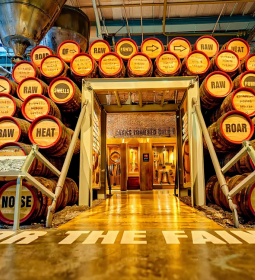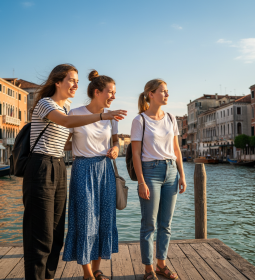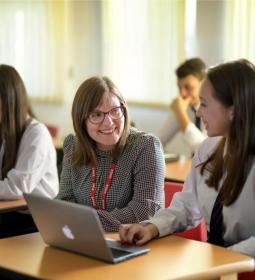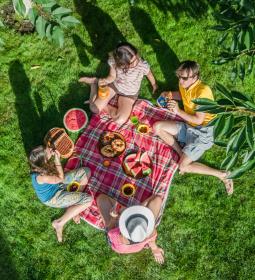At all times, participation in volunteer and community projects has been a good alternative to tourist trips for money. Knights from England, France, Germany and Italy were the first to mark themselves in this direction: as a result of excursions organized by the Travel Crusade company to Palestine, a new state was founded. Then it was the turn of sea cruises to North, South and Central America, travel to Asia and Africa...
In Germany, all this was expressed in the brief and effective slogan "drang nach osten",and in North American practice – in the Work and Travel program.

Our today's material is about volunteer projects that allow you to travel around Europe for relatively free, meet like-minded people and get to know the world. Let's look at the example of a volunteer camp on the border of Austria and Germany, organized by an international NGO.
We will definitely meet
In Europe, one of these organizers of the camps is Service Civil International,the initial information can be obtained on their website. UNESCO is often a partner. So it turned out in this case – the organization for the protection of cultural heritage financed the camp, which allows to improve the living conditions of the participants.
You need to get to the place on your own, by a certain time - by train, hitchhiking or any other means. The road is not compensated, but in Europe there is a high culture of tossing and delivery, and on the highway with a high probability in a modest ten to twenty minutes you will find a car. An alternative is sites like Blah-Bla-Kar: there are many of them, the conditions are different, but everything is God-like.
In the camp, in addition to volunteers, there will be a coordinator acting as an arbitrator and mediator between the participants and the organizers, and at the same time participating in the work.
The task on the spot can be different. Rarely is it participation in archaeological excavations, more often - assistance to local communities in increasing the tourist attractiveness of the region. Simply put, you will work for local farmers, who are already fondled by the authorities and receive subsidies from the budgets of their countries and the EU to allow them to at least partially reach self-sufficiency.

Pick grapes
Project participants will be taken to one of the villages on the Danube, in the Wachau region, listed as a UNESCO World Heritage Site: there are many castles, ruins and structures whose history dates back to the Roman Empire or later dark ages.
The local climate resembles subtropical or Mediterranean, which creates a unique opportunity to grow many southern crops in central Europe and, among other things, grapes. Under it, every free meter is used here, not excluding mountain slopes. This is just the reason for using the labor of volunteers, because the collection of berries on the slopes is possible exclusively by hand, the equipment will not pass there, and it is more careful to assemble by hand.
They can be accommodated in a hotel with meals or private houses of the boarding type (there are a lot of them in Southern Germany and Austrian Tyrol and Styria). So that volunteers are not bored, they are actively entertained by forays into local monasteries, castle ruins, cafes and bars, wineries and even amusement parks - at the expense of the organizers.

The work is monotonous: harvesting leaves, mowing grass and weeding plants; each time, however, it is done in different places. There are no production standards, as during trips to potatoes in student days. But the beginning is early - at 8-9 in the morning. Then an hour-long lunch (a large amount of bread, both black and white, farm products from local farms - from cheese and sausage to vegetables). In the afternoon - a few more hours of work, until 16:00-17:00 - and complete, absolute and unlimited freedom. If you want, go to a hotel to relax, if you want to, have fun with others.
Collect stones
On the other side of the border, where volunteers are transferred by rail or bus, similar tourist activities, such as walking through the cities of the Rhineland, river cruises or skiing, are confusingly similar to austrian ones.
Vineyards don't go anywhere – they have to be dealt with. The range of works is similar: instrumentation, thinning. Care for plants inexperienced people will not be trusted, the risk of destroying grape bushes is too great. Another thing is the restoration of walls that strengthen the terraces on the slopes of hills and mountains. These walls are two to three hundred years old, they are made of stones laid side by side, without cement and other binding solutions, so over time everything collapses under the influence of wind and rain and they need to be updated. For this purpose, both old and new stones are used.

The process takes place under the participation and control of local people: these are also volunteers, participants in local ethnographic and volunteer communities. Often we are talking about pensioners - they are bored and they occupy their free time with small useful things.
By the way, it is the locals who use the equipment (there are local or international rights to drive equipment and work permits in the EU), conduct briefings and training: stones, for example, need to be put with a slope inside, the gaps between large ones should be filled with rubble, and compacted with kiyanka. In a word, art!










